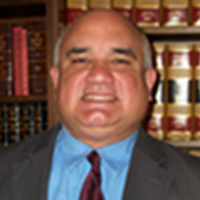 Saint Elmo Misdemeanor Lawyers, Alabama
Saint Elmo Misdemeanor Lawyers, Alabama
Sponsored Law Firm
-
 x
x

Click For More Info:
-
Joe M. Reed & Associates, LLC
524 S. Union St. Montgomery, AL 36104 » view mapCar Accidents, Premises, & Product Liability “Dedicated, Determined, & Dependable.â€
You can learn more about your rights and discuss your case with one of our esteemed lawyers by attending an initial consultation. Call us to set up a meeting today.
800-728-6310  Lawyer Joe Reed Montgomery, AL
Lawyer Joe Reed Montgomery, ALAttorney At Law - AL, 1997
University of Pittsburgh SOL - 1996
 Articles & Media
Articles & MediaClick Here for several links pertaining to our Media involvement.
Not enough matches for Saint Elmo Misdemeanor lawyer.
Below are all Saint Elmo Criminal lawyers.
Sponsored Lawyers
1-10 of 18 matches
Criminal, Divorce & Family Law, Accident & Injury
Christine graduated from Troy State University in 1990 with a Bachelor’s degree in Education and Sports Medicine. She moved to Mobile, as a graduate student and obtained her Master’s Degree in Education and Educational Leadership while working as an Athletic Trainer and teaching in the Education Department at the University of South Alabama and in the public school system in South Alabama. Christine worked as a teacher in the Parochial School System, the Mobile County Public School System, and at the University Level. Christine earned honors in the field of education being awarded Middle School Teacher of the Year and the first Nationally Board Certified K-12 teacher in Alabama. She was a frequent speaker for educational seminars across the state. In 2006 Christine graduated from Law School and was admitted to the Alabama Bar in 2007. With a Juris Doctorate from Thomas Goode Jones School of Law, she opened her own law practice in 2008 and the practice has grown over the years. Christine has offered argument in local and state courts across Alabama, in Federal Courts in the South East, Appellate Courts in both State and Federal Divisions and has been successful with the United States Supreme Court in Searcy v. Strange, the Alabama Marriage Equality Case. Christine is no stranger to controversy arguing the Constitutional Rights of her clients, handling Capital Murder defense and appeals, arguing under appellate review wrongful convictions in criminal cases and for compassionate release from prison. Christine has also been known to argue for judicial reform and against Judge’s that abuse their power and influence across the state. She has frequently argued for the rights of juveniles and for juvenile probation reform in the southern counties of Alabama. In the area of education, Christine has been an advocate for the rights of special education students, championing the fight against bullying and discrimination in schools, and protecting the employment rights of teachers and administrators against school systems. Drawing from her years of teaching and coaching experience, Christine has worked hard to level the playing field and strives to educate her clients and equalize justice for those clients the Hernandez and Associations Law Firm represents. The Hernandez and Associates Law Firm located at the Mid-Towne Works Building at the Loop on Airport Blvd offers in-person, Zoom, teleconferencing, Face Time and Skype for initial consultations and client meetings. We have a full staff working collectively on your cases. Christine personally understands how difficult, stressful, and even frightening the legal system can be, particularly if you are a litigant and this is your first encounter with the legal system. This firm was built from the ground up where the legal team has provided determined representation on difficult and challenging issues. Christine and the other attorneys in the law firm work hard for their success and reputation as a legal team that fights for your rights. Christine returns to Thomas Goode Jones School of Law as a guest lecturer in the areas of Constitutional and Family Law from time to time and has served as mentor to many interns over the years. Christine has also traveled to numerous locations to lecture at continuing education seminars over the span of her career as she is a firm believer in giving back to the community. In addition, to work, Christine coached for nearly 30 years in a number of team and individual sports. Christine freely gives her time, knowledge and experience to younger lawyers and has mentored several attorneys over the years. When she is not at work, she enjoys spending quality time with her spouse, children and the five family dogs.
(more)Accident & Injury, Criminal, Divorce & Family Law, Traffic, Bankruptcy & Debt
I graduated in 1993 at Faulkner School of Law with honors and was a member of the justice court. I have had my trial practice for 24 years which is a 2nd generation law practice and has existed in Mobile and Baldwin Counties of Alabama for over 50 years. My practice areas are Bankruptcy, Criminal, DUI, Personal Injury which includes: Maritime, Auto-Accidents,Workers Compensation and other type cases.
(more)Criminal, DUI-DWI, Felony
My name is James M. Byrd and I'm a Mobile, Alabama criminal defense attorney. I was born in Mobile and graduated from Jefferson Davis High School in Montgomery. Following that, I attended Duke University and graduated from The University of Alabama with a degree in Political Science and History. I come from a family of criminal defense lawyers and I always had a desire to become a criminal defense attorney. After my college graduation, I decided to attend The University of Alabama School of Law. In 1979 I graduated and passed the Alabama State Bar. I moved immediately to Mobile to begin my criminal practice with experienced criminal defense attorneys. I have continued that practice every day since October 1979.
(more)Criminal, Traffic, Accident & Injury, Divorce & Family Law, DUI-DWI
On the Wings of Justice! Call Hawk Law! Local Law Firm serving the Honorable Circuit, District and Municipal Courts of Mobile, Baldwin, Escambia, Clarke, Conecuh, Monroe, Washington, and Butler Counties in Alabama.
(more)




 Lawyer Joe Reed Montgomery, AL
Lawyer Joe Reed Montgomery, AL Articles & Media
Articles & Media




